
I have a confession. One which is likely to shatter your adoration for my suave veneer and perpetually professional perspicacity. In fact, send the children out of the room, because –
I like hockey.
More specifically, I like Dallas Stars hockey – especially when mingled with the weird world of Hockey Twitter Commentary during games. When you follow and love the same team, you become a strange little community… not exactly friends, but more than random fans at the same game. It’s fun. And maddening. And sometimes just odd.

Then there are the feels…


Of course, emotions can run dark as well as light. I mean, it’s live – so there’s that. It’s also semi-anonymous. Even those using their real names aren’t real people in your real life with real faces and real feelings, right?
I realize the logic falls apart pretty quickly there, but that’s kinda my point.
It’s also Twitter, meaning “not a private line” – anyone in the world can look up what you’ve written and hold you to it. This has the potential to become a thing when controversy and strong emotions mix.
Often, during hockey, controversy and strong emotions mix.
Especially when someone gets hurt. Not normal hockey hurt – but ‘uh oh, that looked bad’ hurt. This happened Thursday evening when the Stars visited the Tampa Bay Lightning – a particularly strong team loaded with offensive talent and surrounded by a passionate fan base.
I don’t follow many Tampa people, but response from the Dallas end was predictable…

Hedman – the player receiving that hit – left the ice and didn’t return.
And then it got uglier – in the game AND on Twitter – with what looked like retaliation – and that’s also where it became interesting from more than a hockey standpoint.
I respectfully suggest that what unfolded over the next few minutes was a lesson in perspective and assumptions, with maybe a few big words like ‘confirmation bias’ thrown in for good measure. I’d also argue that the lessons potentially learned from this round of Twitter Fallout could be applied in realms ranging from political arguments to interpersonal relationships to discussions over education reform.
See, some of us got pissed.

My outrage was not without provocation. I’m at home on my couch, watching events unfold on my TV. The camera zooms in on the injured player – MY injured player – while the Stars’ broadcast team expresses concern over his condition. As the extent of his suffering becomes clear, the crowd’s applause swells in the background – and with it, my blood pressure, my adrenaline, and my just-two-beers-I-swear-fueled sense of injustice and twitter-outrage.
It is clear, it is unspeakable, and it is objectively horrific.
Except the crowd in Tampa watching the game live didn’t view a half-dozen slow-mo replays of Benn’s hit on their guy – who they feel like they know and care for. They saw it once in real time, maybe a replay on the Jumbotron, and their guy was hurt enough to leave the ice – which brings the feels. Nor would they have side-by-side video comparing it with the retaliatory hit a minute later.
As the kerfuffle brews after the hit on McKenzie, most people physically there would be drawn to the developing scuffle, the potential for a rather large-scale fight. So yeah, the cheering increases – but we’re experiencing two different things. I’m watching McKenzie, MY GUY, listening to familiar voices confirming my fears; they’re watching a potential fight of all-on-all at a live event with only group feels to drive their reactions.
On the surface we appear to be reacting at the same time to the same events, but we’re not exactly working from the same reality. It’s not just that we disagree – we’re not even addressing the same things.
Time for more preconceptions to enter the mix…
My hockey world consists largely of TV viewing and Stars Twitter – a mixed group, to be sure, a bit cynical and sometimes pissy as hell, but not a group which generally chants for blood or demonstrates pleasure when someone gets injured – no matter what the team or circumstances.
Well, maybe if it were Corey Perry. But otherwise, never.
We tend to give one another the benefit of the doubt when, you know – THE FEELINGS – so when I’m challenged on my interpretation, it is through that lens:


Look what the power of relationships and presumed goodwill can do to change the tone of a discussion. I don’t even KNOW these guys in real life. To the best of my knowledge, I’ve never even interacted with Kedge online before.
But we see ourselves as ‘on the same side’, and consequently I receive their comments much differently than I might otherwise. We’re all suddenly showing our bellies and reassuring ourselves that we’re all good.
Take a moment and mentally apply this to any of your favorite realms of recurring consternation – political, social, personal, or professional – and the parties involved.
Imagine the change if we began with different assumptions about one another. I’m not saying all intentions are good or all participants pure-of-heart – just that we might wait until they’ve established actual malice before proceeding under that paradigm.
In other words, let’s not be like me during hockey.
The next day I was called out by someone I don’t know at all – a writer who covers the Lightning. By way of perspective, writers for SBNation.com contribute as a labor of love – they’re not making serious money; they’re fans.

I asked for clarification, and he referred me to his comments of the previous evening:




What’s the difference in perception?
Well, he knows his team, for one. He has history with the players and a feel for what they are or aren’t likely to do. He probably attends live games in Tampa, and thus sees things through arena norms compared to my televised paradigm. When I’m watching hockey, I’m a fan participating in social dynamics; when he’s watching, he’s a fan doubling as a reporter.
I’m not saying he’s right. Don’t be ridiculous. Clearly I’m far more outraged, therefore justice is on MY side.
But I AM suggesting that there’s something to be gained by viewing circumstances through other lenses. His dissent – while not particularly warm and fuzzy – was also not personal. He finds my thinking bewildering… perhaps inane. But that’s what he attacks – my position. He can even explain why he thinks so, with just the right amount of tone.
OK, maybe it’s a tad belittling – but still…
I’ve been attacked on Twitter in far more juvenile ways, I assure you. It’s a gift I have, bringing out that side in others. And me, so demure and naïve in the ways of the world.
I have absolutely no interest in some sort of passive relativism preventing us from arguing or resolving anything as we scrape and bow before one another’s point of view. God knows if we’re going to make any meaningful progress in the realm of public education (or anything else) we’ll need vigorous and thoughtful debate.
But perhaps those debates will be more productive and our own insights a bit richer if we begin with different assumptions about one another and work from there.
Unless it’s during hockey.

RELATED POST: By Any Means Necessary
RELATED POST: Condemnation Bias
RELATED POST: Cognitive Dissonance

 Accountability. Standards. Highly Qualified. Our Children Deserve… {insert platitude here}.
Accountability. Standards. Highly Qualified. Our Children Deserve… {insert platitude here}.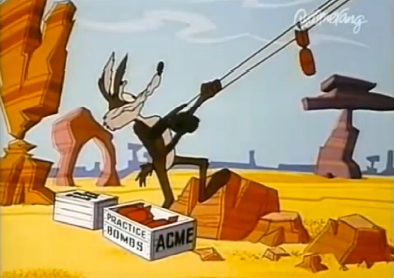 So I’d like to add a question of my own to the edu-pile. It’s a biggie, but one reformers somehow manage to avoid repeatedly. There are enough proverbial elephants in the #edreform room to keep one’s attention scrambled, but this one is larger than the rest. And neon orange. With eleven legs. And it’s making dolphin noises.
So I’d like to add a question of my own to the edu-pile. It’s a biggie, but one reformers somehow manage to avoid repeatedly. There are enough proverbial elephants in the #edreform room to keep one’s attention scrambled, but this one is larger than the rest. And neon orange. With eleven legs. And it’s making dolphin noises.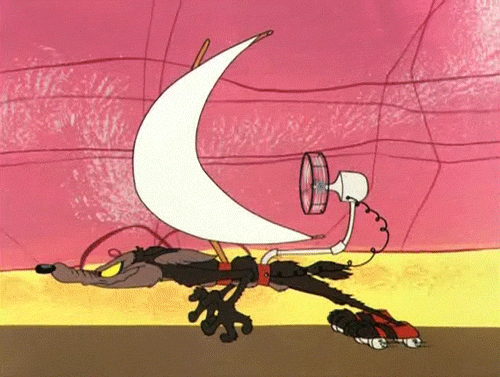




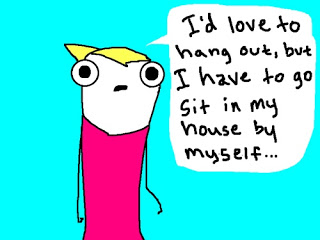
 Don’t get me wrong – they’re not unemployed. They don’t require public assistance or loans from family and friends. They’re one of the more fiscally responsible couples I know, even managing periodic vacations and rather enigmatic social lives.
Don’t get me wrong – they’re not unemployed. They don’t require public assistance or loans from family and friends. They’re one of the more fiscally responsible couples I know, even managing periodic vacations and rather enigmatic social lives.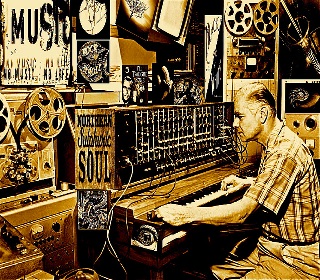 Those hours, however, pay very little, so he also applies his talents to producing music for others – which is rewarding in its own way, but still actual work. It’s not always fun, and it’s not usually easy. He plays in a local cover band doing music he doesn’t always like for crowds which aren’t always appreciative. This is the musician equivalent of a ‘day job’ – it pays the bills while still keeping you near your chosen craft and first love. He writes for periodicals which aren’t always reasonable about events he wouldn’t otherwise attend or people with whom he wouldn’t necessarily choose to spend his free hours – because that’s how ‘work’ works.
Those hours, however, pay very little, so he also applies his talents to producing music for others – which is rewarding in its own way, but still actual work. It’s not always fun, and it’s not usually easy. He plays in a local cover band doing music he doesn’t always like for crowds which aren’t always appreciative. This is the musician equivalent of a ‘day job’ – it pays the bills while still keeping you near your chosen craft and first love. He writes for periodicals which aren’t always reasonable about events he wouldn’t otherwise attend or people with whom he wouldn’t necessarily choose to spend his free hours – because that’s how ‘work’ works.  She currently works at home for a media company promoting independent film projects and other specialized artsy fartsy things. I not actually sure whether this is an innovative approach targeting enigmatic tastes and interests, or if she just manipulates us on Facebook for a living. No matter – I adore them both, and they’re incapable of ever being truly evil.
She currently works at home for a media company promoting independent film projects and other specialized artsy fartsy things. I not actually sure whether this is an innovative approach targeting enigmatic tastes and interests, or if she just manipulates us on Facebook for a living. No matter – I adore them both, and they’re incapable of ever being truly evil. 
 Being in Tulsa, one can’t help but maintain some awareness of the evangelical community and the world of relatively orthodox faith – American Protestant flavor. I’ve been in and out of it myself in years past.
Being in Tulsa, one can’t help but maintain some awareness of the evangelical community and the world of relatively orthodox faith – American Protestant flavor. I’ve been in and out of it myself in years past.
 What does ‘improvement’ look like, exactly? It might be possible to make Sunday mornings more entertaining, for example… does that require a trade-off involving doctrine or appropriate mindsets towards an omnipotent God? Maybe we could focus more on outreach and bringing in the lonely and dysfunctional. That certainly seems in keeping with the overall mission, but what do constant new names and their weird issues do to that community the rest of us need so badly?
What does ‘improvement’ look like, exactly? It might be possible to make Sunday mornings more entertaining, for example… does that require a trade-off involving doctrine or appropriate mindsets towards an omnipotent God? Maybe we could focus more on outreach and bringing in the lonely and dysfunctional. That certainly seems in keeping with the overall mission, but what do constant new names and their weird issues do to that community the rest of us need so badly? 
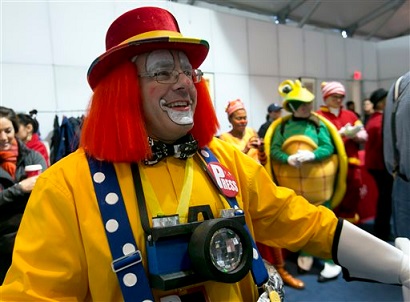 What does improvement even look like, exactly? It might be possible to raise test scores, for example… does that require a trade-off involving personal fulfillment or student attitudes towards learning or the miraculous possibilities it offers? Maybe we could focus more on creative ways to reach the misfits and the underachieving. That certainly seems in keeping with the overall mission, but what does pouring all of our resources into the most draining minority of our population do to the standards and expectations the rest of them need held firmly in order to flourish?
What does improvement even look like, exactly? It might be possible to raise test scores, for example… does that require a trade-off involving personal fulfillment or student attitudes towards learning or the miraculous possibilities it offers? Maybe we could focus more on creative ways to reach the misfits and the underachieving. That certainly seems in keeping with the overall mission, but what does pouring all of our resources into the most draining minority of our population do to the standards and expectations the rest of them need held firmly in order to flourish? 
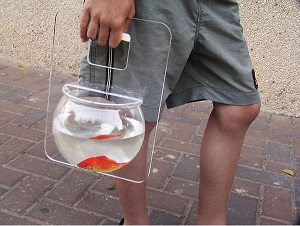 Presumably these are antiquated codes passed in different times and circumstances. Some would be difficult to repeal even if legit. What aspiring legislator wants to campaign FOR simulated buffalo intercourse, or come out as pro-hamburger violating?
Presumably these are antiquated codes passed in different times and circumstances. Some would be difficult to repeal even if legit. What aspiring legislator wants to campaign FOR simulated buffalo intercourse, or come out as pro-hamburger violating? Even more modern, slightly less-ludicrous legislation can fall into gray areas. Staying parked on the street in a residential area for more than 24 hours can get you towed, but rarely does unless other issues are involved. Disposing of a car battery in the trash is big no-no, but I’m not sure anyone actually checks that sort of thing.
Even more modern, slightly less-ludicrous legislation can fall into gray areas. Staying parked on the street in a residential area for more than 24 hours can get you towed, but rarely does unless other issues are involved. Disposing of a car battery in the trash is big no-no, but I’m not sure anyone actually checks that sort of thing.  You can often tell how long a teacher has been in the classroom by how many detailed expectations and procedures make it onto her wall or into his syllabus; it’s like counting a tree’s rings to determine its age.
You can often tell how long a teacher has been in the classroom by how many detailed expectations and procedures make it onto her wall or into his syllabus; it’s like counting a tree’s rings to determine its age. 
 We need to figure out what our actual goals are, both as a whole and in our individual classrooms. Is the purpose of our rules to help things run smoothly? To keep everyone safe & opportunities relatively equitable? To introduce life skills like ‘manipulation’ and ‘guessing which laws actually apply to ME?’
We need to figure out what our actual goals are, both as a whole and in our individual classrooms. Is the purpose of our rules to help things run smoothly? To keep everyone safe & opportunities relatively equitable? To introduce life skills like ‘manipulation’ and ‘guessing which laws actually apply to ME?’